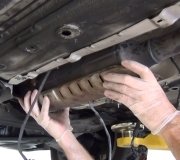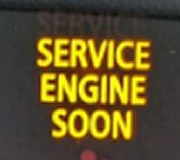It ran for many years and when I got a new car I stop driving it.
The problem is every time I drive the car after 20-30 minutes the car completely stops, ( no matter if the car is in park or nuetral). Then when the car cools or sits for a while. It starts right back up. The whole time I driving the car I am sacred. It even drives as it trying to gasp for air. Please help me. I keep getting different answer, such as; heater core, fuel filter, Ignition module or catalytic converter.
What is the problem? :X
SPONSORED LINKS
Friday, August 11th, 2006 AT 2:33 PM




